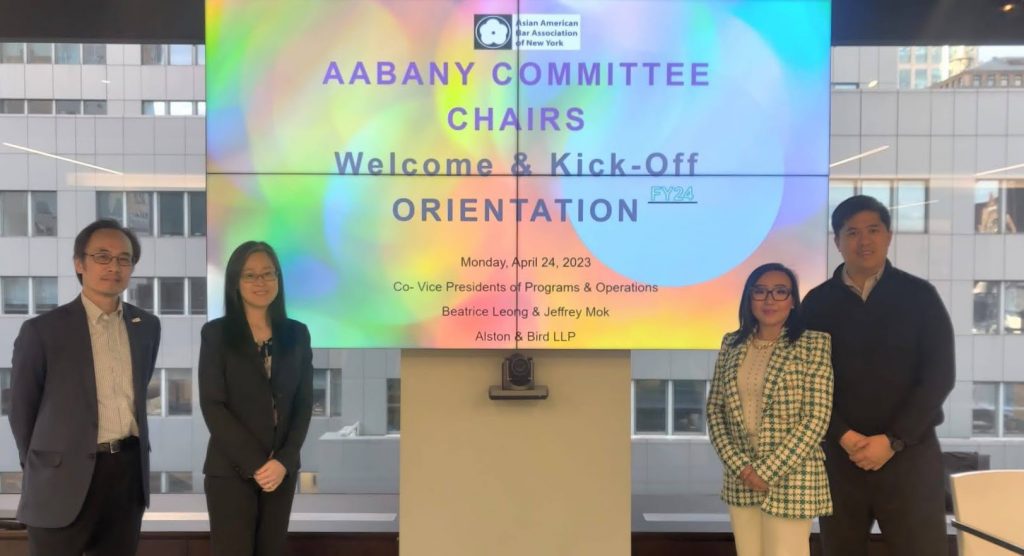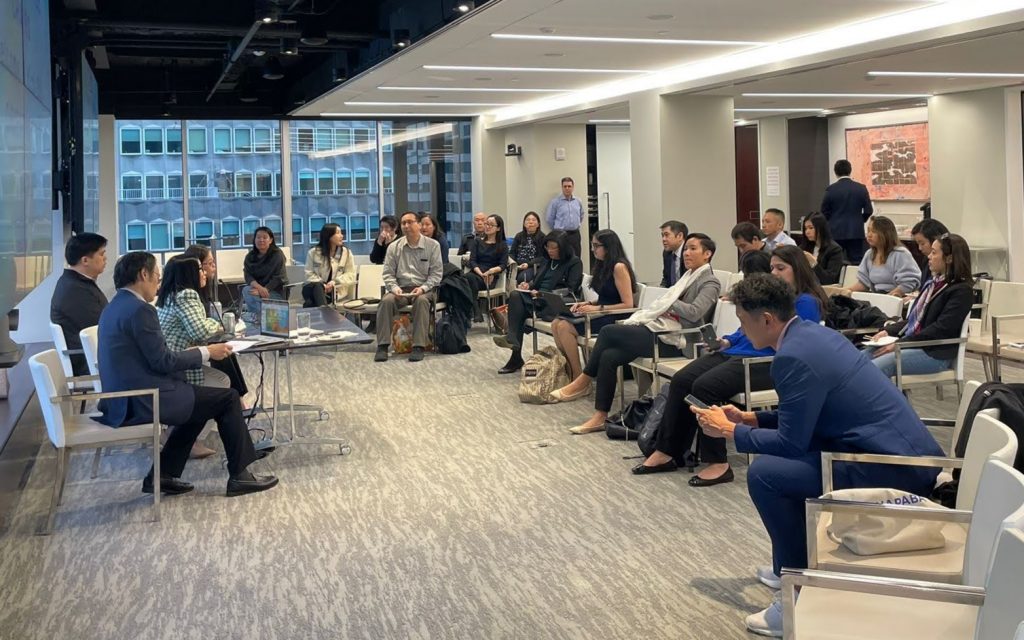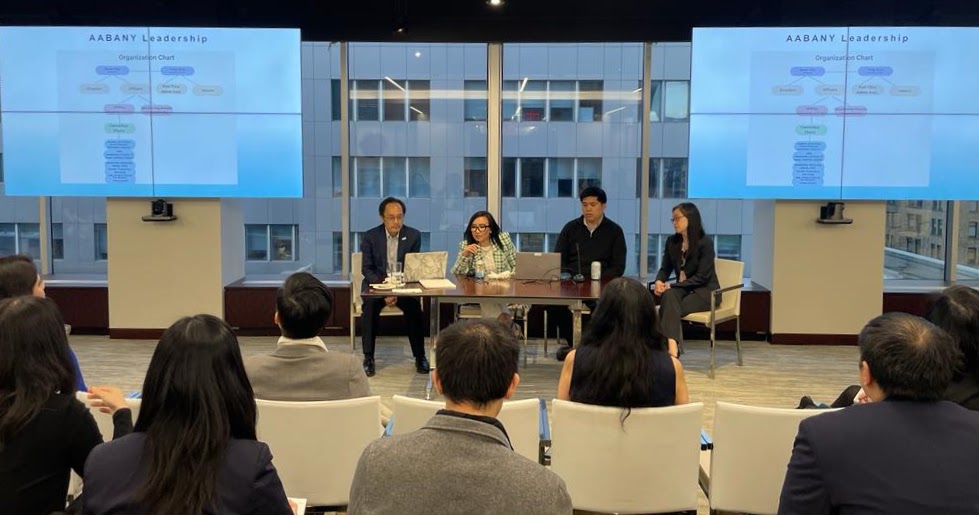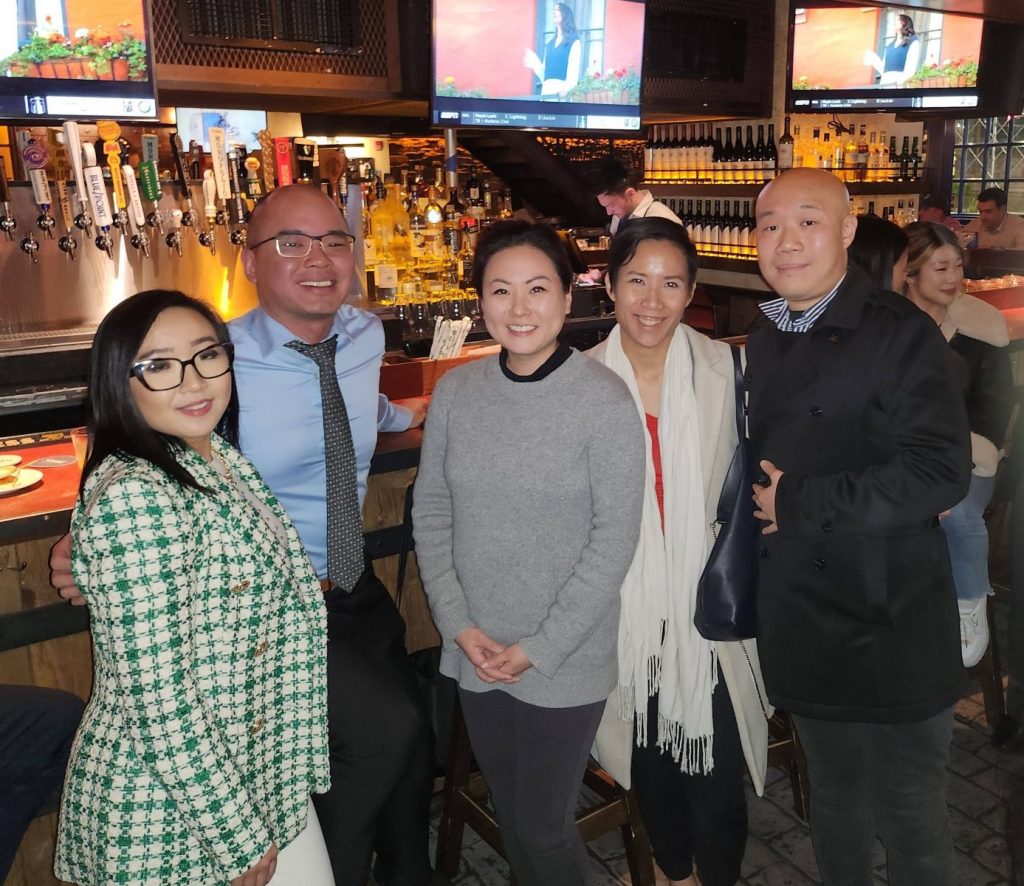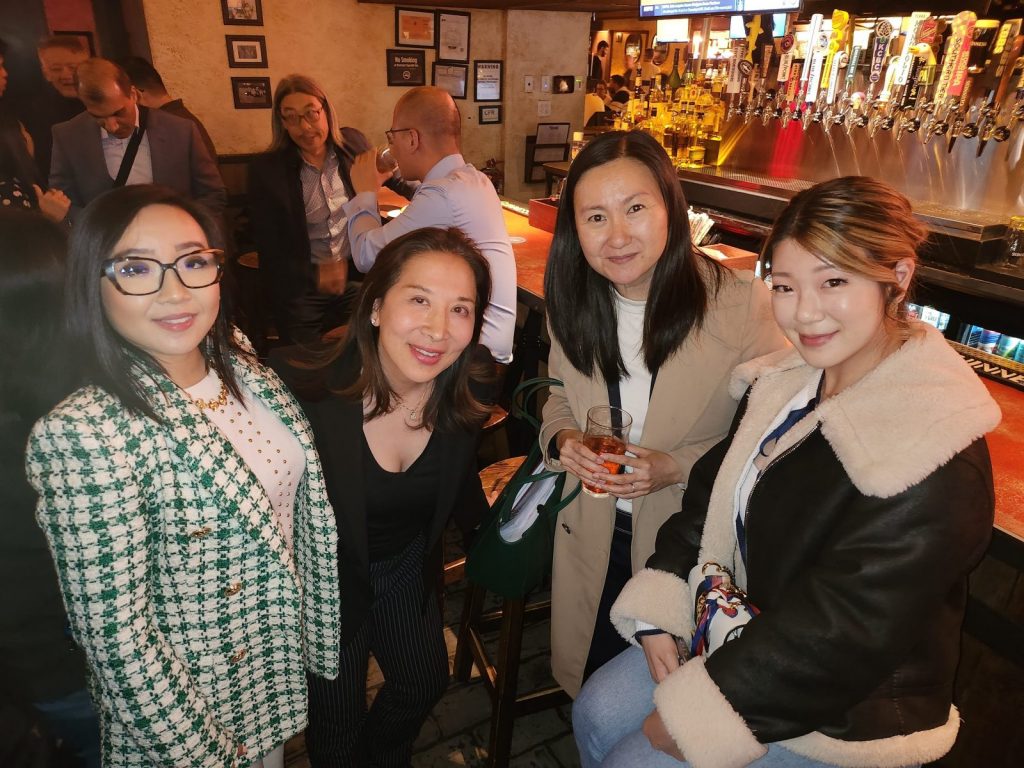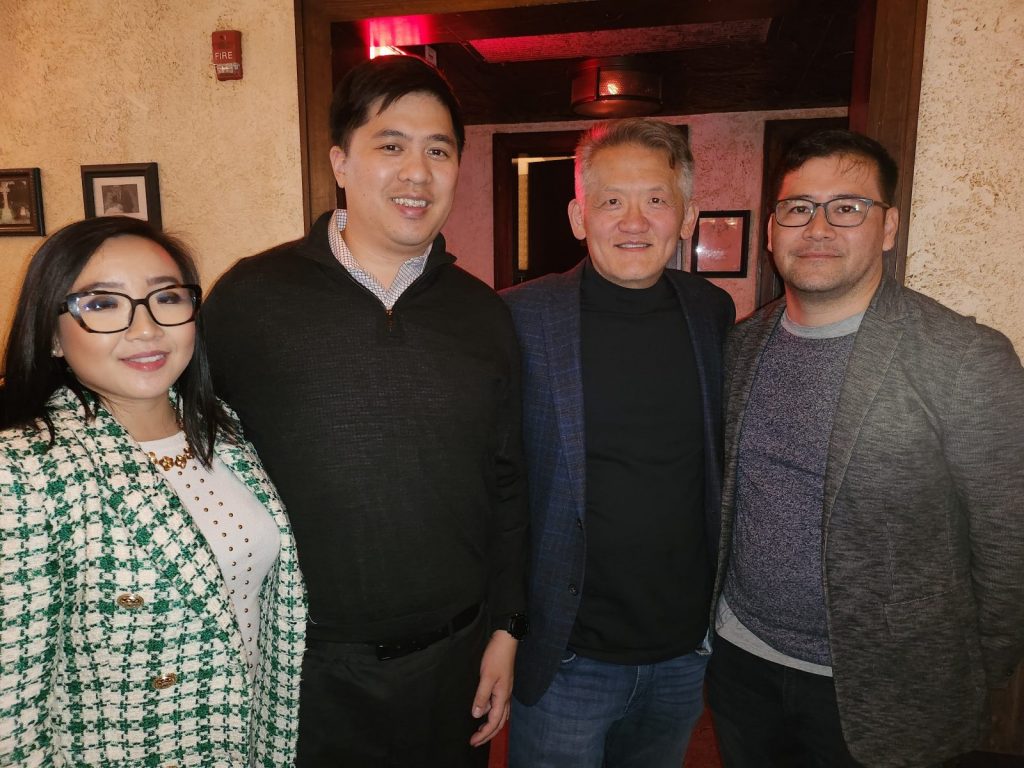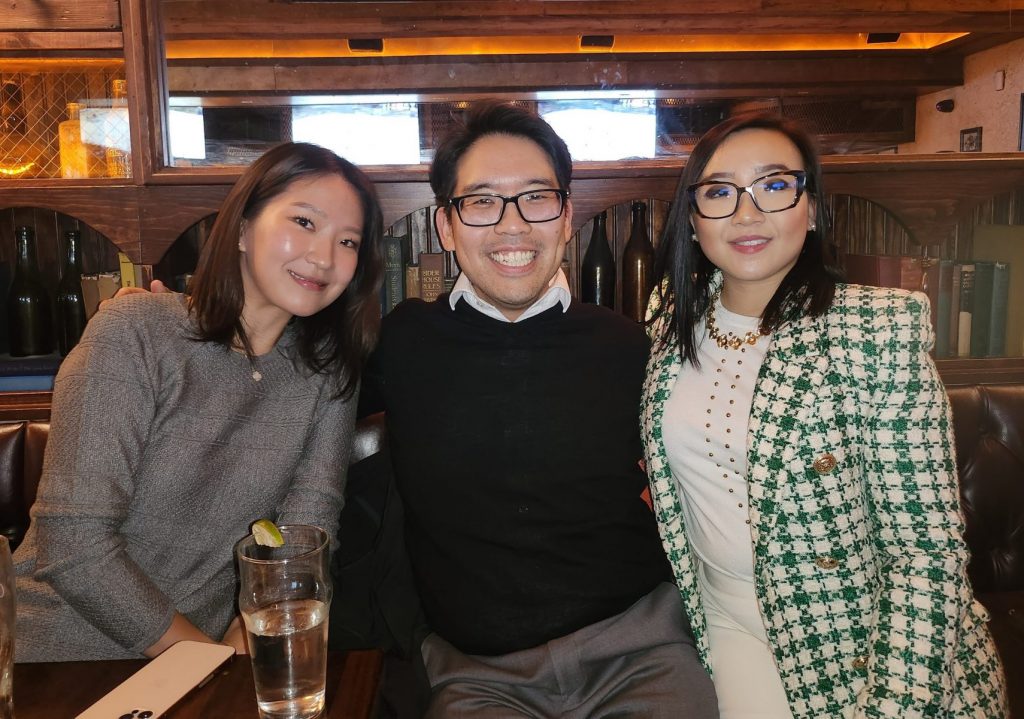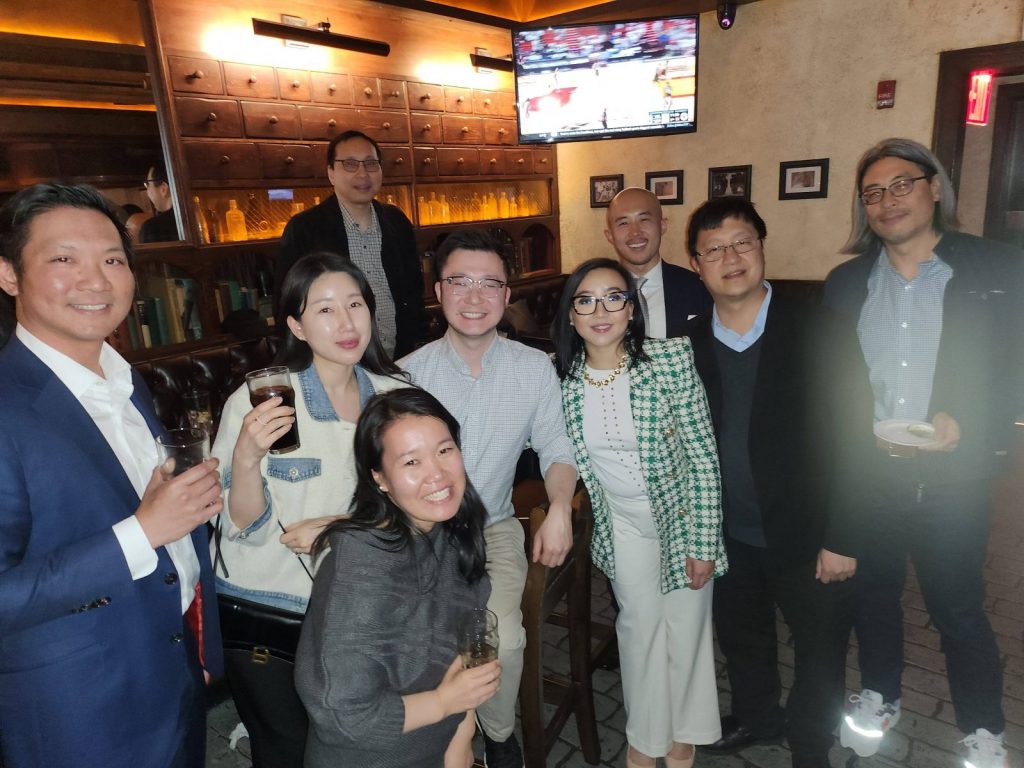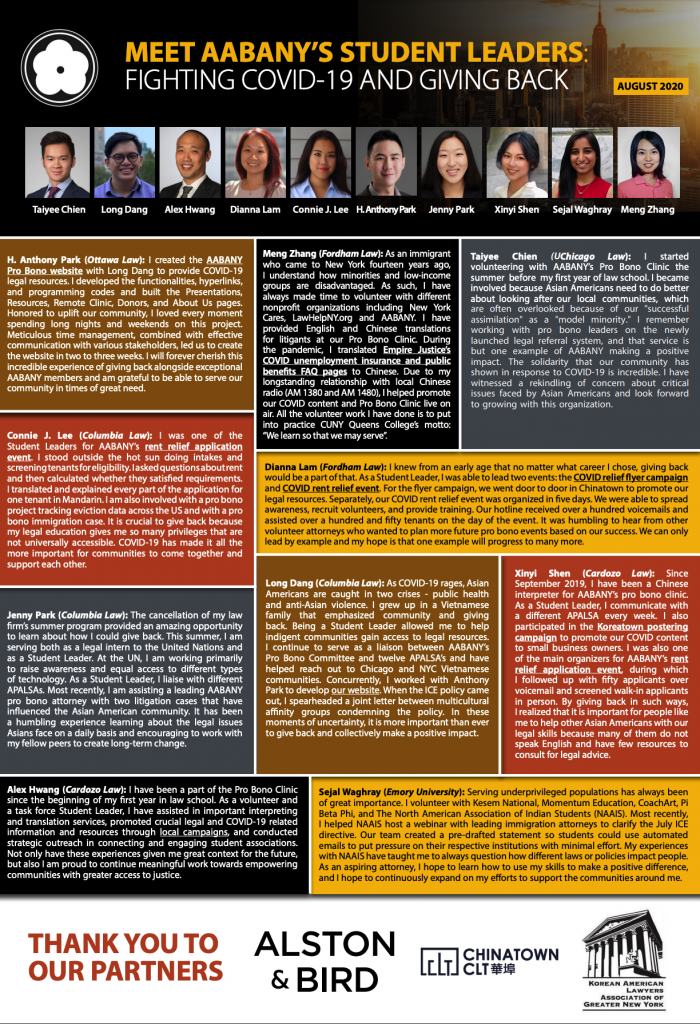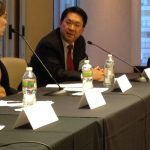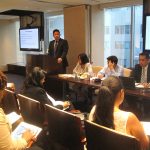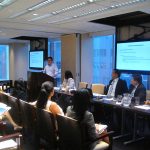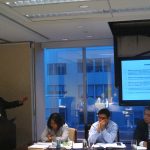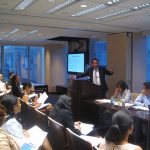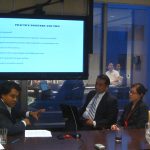//photos.gstatic.com/media/slideshow.swf
Thank you to all those who attended our Fifth Annual Fall Conference: Empowering Unity and Progress, hosted at Morgan Lewis on September 20, 2014.
With over 300 people registered, the full day of CLE programs and Trial Advocacy Program (hosted at Alston & Bird LLP) were highly informative, productive, and engaging with truly something for everyone. We had panels addressing topics from Asian Americans in the Civil Rights Movement to How to Make it Rain and Keep It Raining. The invite-only In-House Counsel and Judicial Forums provided productive environments for candid discussion.
Gurinder Singh, Vice President of Programs and Operations, kicked off the lunch session by introducing Brad Edmister, Partner at Morgan Lewis, who offered welcoming remarks on behalf of the firm. At the lunch, we were excited to present our inaugural awards. We were honored to present the inaugural Norman Lau Kee Trailblazer Award to Hon. Marilyn Go and the inaugural Law Firm Diversity Award to Perkins Coie LLP.
Executive Director Yang Chen presented the Norman Lau Kee Trailblazer award, recognizing Norman Lau Kee who was present at the event, and then introducing Judge Go. When accepting her award, Judge Go spoke on the importance of being at right place at the right time, most notably on how expectations of Asian Americans have shaped her personal journey and the most opportune times to break barriers. As a trailblazer in the Asian American legal community, she is the first Asian American female to serve as a federal judge and is a founding member of AABANY.
President Clara Ohr presented the Law Firm Diversity Award and introduced Dennis Hopkins, Partner at Perkins Coie, who accepted the Law Firm Diversity Award on behalf of the firm. Dennis remarked on how Perkins is perceived as a leader, but noted humbly that they are “just doing what they should do” and are glad to be receiving acknowledgment.
Gurinder then introduced Helen Wan who spoke about her book The Partner Track and she too spoke of Asian Americans in law, specifically navigating the corporate world. Copies of her just-released paperback edition of her book were available for purchase at the event, and many attendees took the opportunity to pick up a copy and have it inscribed by Helen.
President-elect Will Wang offered closing remarks at the lunch. He reminded everyone to save the date for the 2015 Annual Dinner, to be held on February 25 at Cipriani Wall Street.
We hope all those who attended the Cocktail Reception and Committee Dinners enjoyed some well-deserved refreshment in some good company. We were happy to welcome 185 attendees at the Cocktail Reception hosted one block away at Park Avenue Tavern.
This year, there were five Committee Dinners hosted: Government Service & Public Interest/Litigation/Labor and Employment/Young Lawyers Committees Dinner at Aperitivo; In-House Counsel at Izakaya NoMad; Real Estate and Small & Solo Firm Practice Committees at Cibo; Intellectual Property Comittee at Radiance Tea House and Fine Asian Cuisine; and Tax and Bankruptcy & Restructuring Committees at Capital Grille.
We thank all those who made the day possible: Brad Edmister, Morgan Lewis staff, moderators and panelists, our sponsors for their continuing support, honorees, Helen Wan for speaking, volunteers, and especially you for attending.
